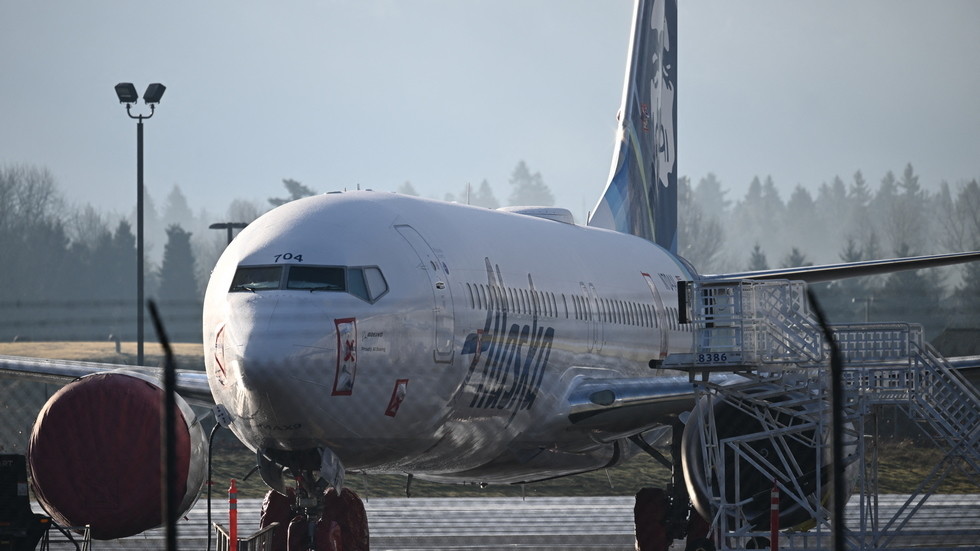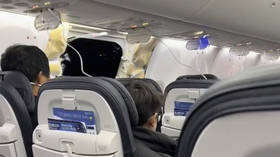
The FAA has imposed a series of restrictions on the company’s 737 MAX jets after a mid-air blowout incident this month

Alaska Airlines N704AL, a 737 Max 9, which made an emergency landing at Portland International Airport on January 5 is parked on the tarmac in Portland, Oregon, on January 23, 2024. © Patrick T. Fallon / AFP
The US Federal Aviation Administration (FAA) has temporarily prohibited Boeing from expanding the production of its 737 MAX planes citing passenger safety concerns. The decision comes on the heels of a blowout incident in January, in which one of the company’s jets lost a chunk of its fuselage mid-air.
On January 5, Alaska Airlines Flight 1282 traveling from Portland, Oregon to California, was forced to turn back and make an emergency landing shortly after takeoff after a door panel was ripped off, exposing passengers to the outside environment. While the incident caused no serious injuries, the FAA grounded 171 Boeing 737-9 MAX airplanes to conduct rigorous inspections. Boeing itself has admitted to a “mistake.”
In a statement on Wednesday, the US aviation regulator stressed that the Portland incident “must never happen again.” The FAA added that it had informed Boeing that “it will not grant any production expansion of the MAX, including the 737-9 MAX,” adding that all grounded jets would undergo a thorough oversight process, promising that the plane would be able to return to service once it is completed.

Read more
“Let me be clear: This won’t be back to business as usual for Boeing. We will not agree to any request from Boeing for an expansion in production or approve additional production lines for the 737 MAX until we are satisfied that the quality control issues uncovered during this process are resolved,” FAA Administrator Mike Whitaker said.
The agency noted that the enhanced maintenance process would require inspection of specific bolts, correcting any abnormal conditions and detailed visual checks of several specific aircraft parts. Earlier, the FAA also announced that it would have “more boots on the ground” to scrutinize Boeing’s production and manufacturing operations.
Loose bolts in particular have been a safety concern for both Boeing, the FAA, and operating air companies, with at least two airlines finding this defect following the Portland incident.
The new wave of groundings and safety checks on Boeing aircraft comes after the US air manufacturer already found itself in hot water several years ago when two of its planes crashed in Ethiopia (2019) and Indonesia (2018), killing a total of 346 people. The two tragedies resulted in a 20-month-long grounding of 737 MAX aircraft.




